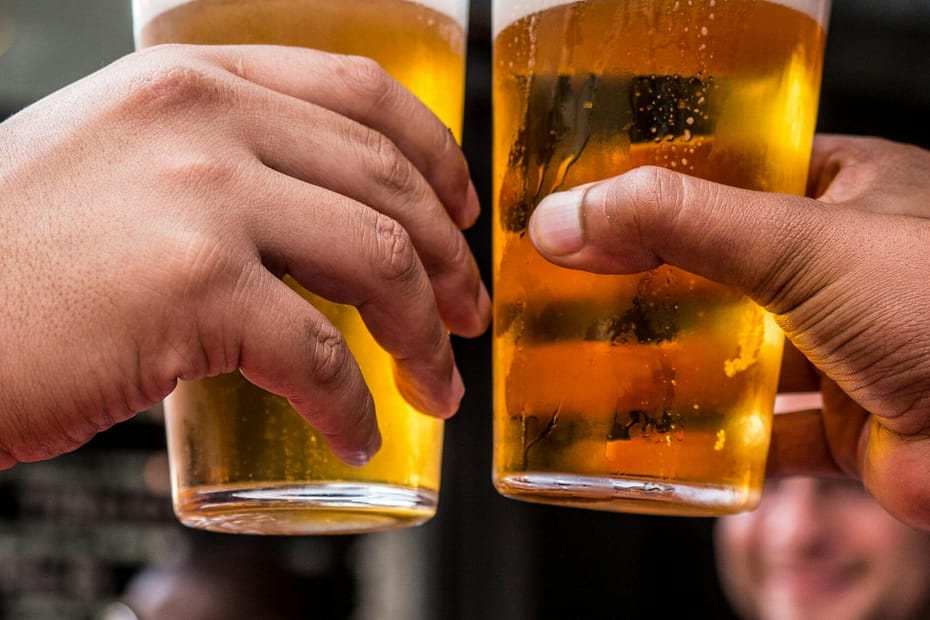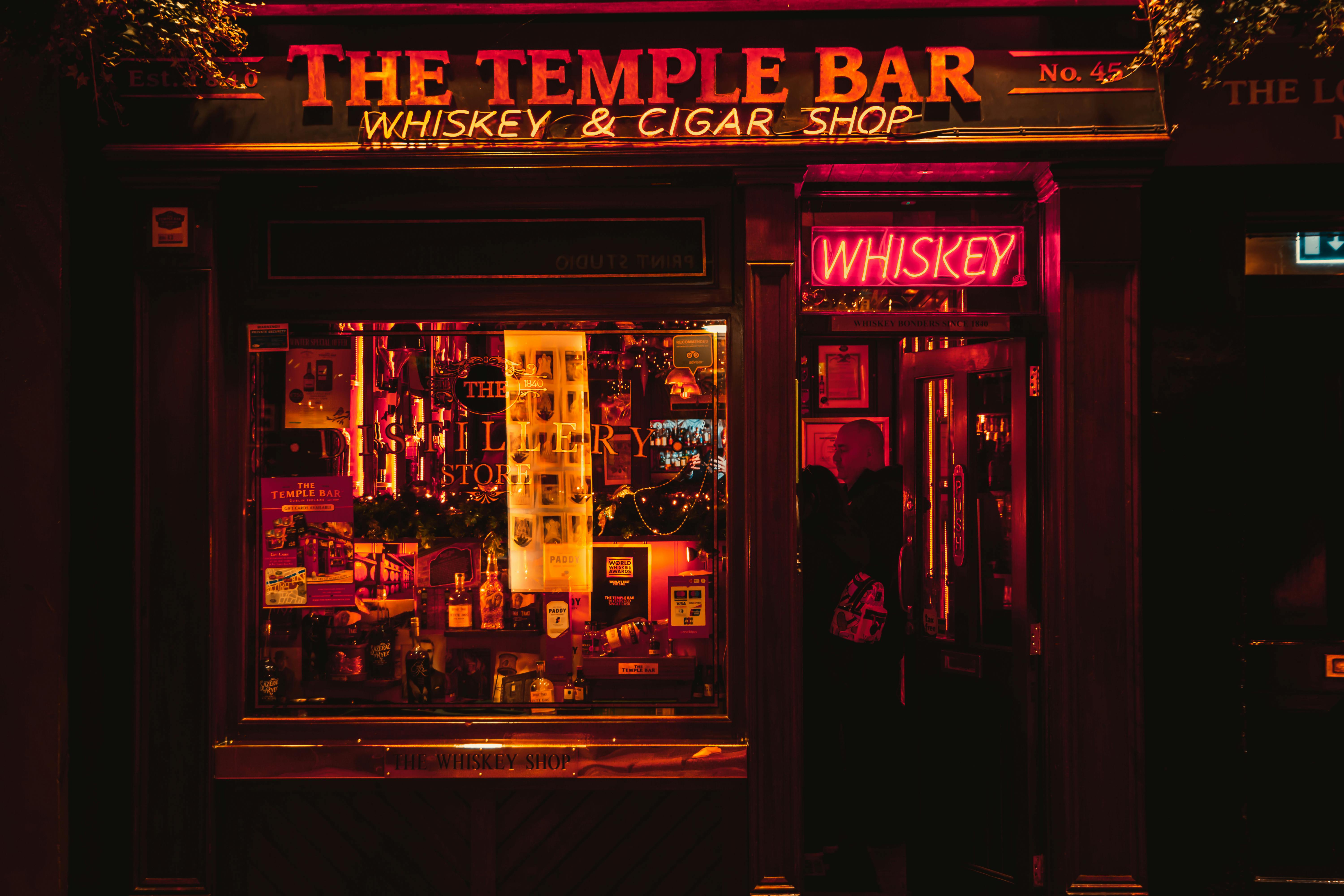As you venture into the world of owning a bar, it’s important to understand the legal considerations surrounding the sale and consumption of alcohol. From obtaining the necessary permits and licenses to dealing with potential liabilities, navigating the legal landscape can be crucial for the success of your establishment. In this article, we will explore some of the key regulations and guidelines you need to be aware of when it comes to serving alcohol in a bar, ensuring a safe and compliant environment for both your customers and your business.
Licensing
Obtaining a liquor license
Obtaining a liquor license is an essential step for any bar or establishment that intends to serve alcohol. To obtain a liquor license, you will need to go through the proper channels and adhere to the regulations set by your local authorities. This process typically involves submitting an application, providing documentation such as identification and proof of ownership or tenancy, and paying the required fees. It’s important to understand the specific requirements in your jurisdiction and allow ample time for the application process.
Types of licenses
There are different types of licenses available depending on the nature of your establishment and the services you offer. Common types of licenses include on-premises licenses, which allow for the consumption of alcohol on the premises, and off-premises licenses, which permit the sale of alcohol for consumption elsewhere. Additionally, there may be specialized licenses for specific types of establishments, such as restaurants or nightclubs. It’s crucial to ensure that you obtain the correct license that aligns with your business model and offerings.
License renewal and fees
Once you have obtained a liquor license, it’s vital to understand the requirements for license renewal and any associated fees. Liquor licenses are typically valid for a specific period, often one or two years, and must be renewed regularly. Renewal procedures may include submitting updated documents, such as proof of insurance or updated lease agreements. Additionally, there are fees associated with license renewal, which vary depending on your jurisdiction. It’s crucial to stay informed about upcoming renewal deadlines and budget for the associated fees to ensure continuous compliance.
Age Restrictions
Legal drinking age
Knowing and strictly adhering to the legal drinking age in your jurisdiction is crucial for the responsible service of alcohol. The legal drinking age varies from country to country and even within regions or states. It’s essential to be familiar with the specific age requirement in your area and to strictly enforce it. By ensuring that only individuals of legal drinking age are served, you protect both your establishment and the patrons by promoting responsible consumption.
Verification of age
To comply with age restrictions, it’s necessary to have robust procedures in place for verifying the age of customers. Acceptable forms of identification may include a driver’s license, passport, or government-issued identification card. It’s essential to train your staff on how to properly verify identification documents, including recognizing signs of tampering or fraud. Regular training sessions and providing staff with resources to stay updated on identification practices can help maintain compliance with age restrictions and reduce the risk of serving minors.
Minors on the premises
Even if your establishment does not cater to underage individuals, it’s important to have policies in place to handle situations involving minors on the premises. Minors may include individuals who are below the legal drinking age or individuals who are legally allowed but wish to be accompanied by underage friends or family members. Ensuring that minors are not served alcohol and monitoring their presence to prevent any illegal activities is critical to both legal compliance and maintaining a safe environment for all patrons.
Responsible Service
Training staff
Properly training your staff is essential for responsible alcohol service. Staff members should receive comprehensive training on alcohol laws, responsible serving practices, and how to identify signs of intoxication. Training programs can include information on measuring and pouring standard drink sizes, understanding the effects of alcohol on the body, and strategies for effectively managing intoxicated customers. By investing in ongoing training and educating your staff, you empower them to make responsible decisions when serving alcohol.
Monitoring alcohol consumption
It’s crucial to monitor alcohol consumption within your establishment to ensure the responsible service of alcohol. This involves observing customers for signs of intoxication, such as slurred speech, impaired coordination, or aggressive behavior. Training your staff to proactively intervene when necessary, such as pacing the consumption of alcohol or offering water and food, can help prevent overconsumption and reduce the risk of incidents related to intoxication. Regularly reminding your staff of the importance of monitoring alcohol consumption and providing them with the necessary tools, such as breathalyzer tests, can support responsible alcohol service.
Dealing with intoxicated individuals
Even with responsible service practices in place, there may still be instances where customers become visibly intoxicated. It’s essential to have protocols in place for dealing with intoxicated individuals to ensure their safety and the safety of others. This may include offering alternative transportation options, such as a taxi or ride-sharing service, or contacting a designated driver for them. In some cases, it may be necessary to refuse further service to intoxicated individuals to maintain a safe environment. Training your staff on how to handle these situations with empathy and professionalism is key to maintaining a positive experience for all patrons.
Serving Hours
Regulated serving hours
Different jurisdictions may have specific regulations regarding the hours during which alcohol can be served. Some areas may have fixed serving hours that apply to all establishments, while others may have more flexible regulations. It’s important to familiarize yourself with the serving-hour restrictions in your area and ensure that your establishment is compliant. Adhering to regulated serving hours helps maintain order and prevent noise disturbances in the surrounding community.
Extensions and exceptions
Certain situations may warrant extensions or exceptions to the normal serving hours. For example, special events or holidays may allow for extended serving hours with proper authorization from local authorities. It’s essential to be aware of the processes and requirements for obtaining extensions or exceptions, should your establishment wish to operate outside the regular serving hours. By following the proper procedures and obtaining the necessary permits, you can ensure that you are in compliance with the law while accommodating specific circumstances.
Advertising and Marketing
Regulations on alcohol advertising
Advertising alcohol is subject to various regulations to ensure responsible and ethical practices. These regulations may include restrictions on the content, placement, and targeting of alcohol advertisements. The aim is to prevent advertisements from appealing to underage individuals or promoting irresponsible drinking behaviors. Familiarize yourself with the specific regulations in your jurisdiction and ensure that your advertising materials comply with those guidelines to maintain ethical standards and legal compliance.
Marketing to specific groups
While alcohol advertising regulations aim to prevent appealing to underage individuals, they also govern the targeting of specific demographic groups. Some regulations may restrict the use of certain imagery or themes that could be seen as promoting excessive drinking or connecting alcohol consumption to social success. It’s essential to carefully consider your target audience and review the regulations in your area to ensure that your marketing efforts align with responsible practices and adhere to legal guidelines.
Social media advertising
In the digital age, social media has become an integral part of advertising and marketing strategies. However, it’s important to remember that the same regulations that apply to traditional advertising also extend to social media platforms. Ensure that your social media accounts and campaigns comply with the relevant alcohol advertising regulations, including age restrictions, content guidelines, and disclosure requirements. Additionally, monitoring user-generated content and promptly addressing any inappropriate or irresponsible mentions of your establishment can help maintain a positive online presence.
Taxation
Alcohol tax laws
Alcohol tax laws govern the taxation of alcoholic beverages, including beer, wine, and spirits. These laws can encompass various aspects, such as the types of beverages subject to taxation, the rates of taxation, and the collection and reporting requirements. It’s essential to understand the specific alcohol tax laws in your jurisdiction and ensure that your establishment remains in compliance. Familiarize yourself with the necessary reporting and payment procedures to avoid penalties for non-compliance.
Reporting and payment
Compliance with alcohol tax laws typically involves regular reporting and payment obligations. Depending on your jurisdiction, you may be required to submit periodic tax reports detailing the amount of alcohol sold and pay the associated taxes. It’s crucial to keep accurate and up-to-date records of your sales to facilitate the reporting process. Additionally, understand the payment timelines and methods accepted by the tax authorities to ensure timely and accurate remittance.
Penalties for non-compliance
Failure to comply with alcohol tax laws can result in significant penalties and legal consequences. Penalties may include fines, loss of license, or even criminal charges in severe cases. By diligently adhering to alcohol tax laws and promptly fulfilling reporting and payment obligations, you can avoid unnecessary penalties and maintain the financial integrity of your establishment.
Health and Safety
Maintaining a safe environment
Providing a safe environment for your patrons is of utmost importance. This involves implementing health and safety measures such as proper ventilation, adequate lighting, and functional emergency exits. Regular checks and maintenance of equipment and facilities, including fire sprinkler systems and alarms, can help prevent accidents and ensure compliance with safety regulations. Additionally, training your staff on emergency procedures and providing them with the necessary resources, such as first aid kits, can contribute to a safe and secure environment.
Fire safety regulations
Fire safety regulations specifically address the prevention and management of fire-related risks within your establishment. Requirements may include installing fire extinguishers, smoke detectors, and emergency lighting, as well as conducting regular fire drills. Familiarize yourself with the fire safety regulations in your jurisdiction and ensure that your establishment complies with the necessary measures. Fire safety inspections may be conducted periodically, and failure to meet the requirements can result in penalties or closure of your establishment.
Insurance requirements
Securing appropriate insurance coverage is a crucial aspect of managing the risks associated with operating a bar or establishment serving alcohol. Liquor liability insurance, for example, can protect your establishment in the event of a claim related to alcohol-related incidents. It’s essential to understand the insurance requirements specific to your jurisdiction and ensure that your coverage adequately addresses the potential risks. Consult with an insurance professional specializing in the hospitality industry to assess your insurance needs and obtain the appropriate coverage.
Securing Permits
Noise permits
In some jurisdictions, bars and establishments may require specific permits to operate within designated noise limits. Noise permits are typically required to ensure that the surrounding community is not disturbed by excessive noise, particularly during late-night hours. Familiarize yourself with the local regulations regarding noise permits and work with the appropriate authorities to obtain the necessary permits. Compliance with noise regulations can help maintain a positive relationship with the community and avoid potential penalties or restrictions on your operations.
Outdoor seating permits
If your establishment offers outdoor seating, you may need to obtain permits specific to this area of your premises. Outdoor seating permits help ensure that the outdoor area is in compliance with safety and zoning regulations. Requirements may include sufficient seating arrangements, adherence to noise restrictions, and compliance with health and safety standards. Consult with local authorities to understand the specific requirements and procedures for obtaining and maintaining outdoor seating permits.
Special event permits
If you plan to host special events or activities that fall outside the scope of your regular operations, you may need special event permits. These permits allow for the temporary modification of your license or the addition of services, such as live entertainment or extended serving hours, for the duration of the event. It’s essential to check with the appropriate authorities and understand the requirements and timelines for obtaining special event permits. Adhering to the conditions outlined in the permits ensures that you remain in compliance with the law while offering unique experiences to your patrons.
Enforcing Age Restrictions
ID checking procedures
To enforce age restrictions effectively, it’s crucial to establish reliable procedures for checking identification documents. Train your staff on how to properly check identification, including the requisite features to look for, such as holograms or watermarks. Additionally, establish a clear policy on what forms of identification are accepted and how to handle situations where customers do not have acceptable identification. Regularly review and update your procedures to ensure they align with the latest identification practices and legal requirements.
Liabilities for serving minors
Serving alcohol to minors can result in severe consequences for your establishment. Aside from potential legal penalties, such as fines or loss of license, serving minors can also lead to reputational damage and a loss of trust within the community. It’s essential to educate your staff about the liabilities associated with serving minors and emphasize the importance of strict adherence to age restrictions. By maintaining a responsible and vigilant approach, you can protect the well-being of your patrons and the reputation of your establishment.
Fake ID detection
Fraudulent identification documents pose a challenge in enforcing age restrictions and preventing the service of alcohol to minors. It’s crucial to educate your staff on how to spot fake identification and provide them with the necessary tools, such as reference guides or online resources. Look for potential signs of tampering or inconsistencies in the presented identification, and train your staff to escalate any suspicions to a manager or supervisor. Implementing robust procedures and actively addressing potential fake ID issues can help maintain compliance and protect against liability.
Liabilities and Insurance
Liquor liability insurance
Liquor liability insurance is a specialized form of coverage that protects businesses that serve alcohol from potential claims related to alcohol-related incidents. This type of insurance can help cover legal fees, medical expenses, and damages resulting from incidents like accidents or injuries caused by intoxicated individuals. It’s essential to carefully review the coverage options available and select a policy that adequately protects your establishment. Consult with an insurance professional experienced in liquor liability to ensure your insurance coverage is comprehensive and meets your specific needs.
Dram shop laws
Dram shop laws are regulations that hold establishments serving alcohol liable for the actions of an intoxicated individual. These laws can vary between jurisdictions, but generally, they allow injured parties to sue the establishment for damages caused by the intoxicated person. Understanding the dram shop laws in your jurisdiction is vital to managing liabilities effectively. By implementing responsible service practices and maintaining comprehensive liquor liability insurance, you can mitigate the risks associated with dram shop laws and protect your establishment.
Dealing with accidents or incidents
Even with the best preventative measures in place, accidents or incidents may still occur within your establishment. It’s essential to have protocols in place to effectively handle these situations. This may involve providing immediate first aid, contacting emergency services if necessary, and documenting the incident thoroughly. Training your staff on these procedures and regularly reviewing them can help ensure a coordinated and appropriate response in the event of an accident or incident. Promptly addressing any accidents or incidents demonstrates your commitment to the safety and well-being of your patrons and can help mitigate potential liability.



